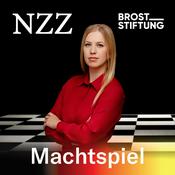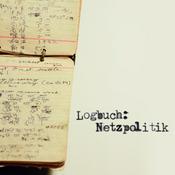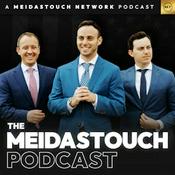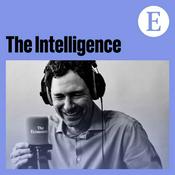475 Episoden
- Israel has operated in the skies above Tehran. It has struck nuclear facilities near Baghdad and dominated the airspace of its enemies across the region. But according to a newsletter that the Israeli journalist Amit Segal sent out earlier this week, there is one city in the Middle East where the IDF cannot move freely. That city is a fifteen-minute drive from Tel Aviv, and is called Bnei Brak.
On February 15, two female soldiers from the IDF's Education and Youth Corps arrived in this densely populated haredi city for a routine visit to a draftee ahead of his induction. A local resident called a hotline run by the Jerusalem Faction—an anti-conscription group—and falsely reported that military police were distributing draft notices. A mob of hundreds materialized, surrounded the soldiers, chased them through the streets, and forced them to hide until police arrived to rescue them. A patrol car was overturned. A police motorcycle was set on fire. Twenty-six were arrested; most were released by nightfall.
Israeli leaders across the political spectrum condemned the violence as the provocation of extremists. But whether they support the rioters or not, most of the Jews of Bnei Brak see the draft as an existential threat to their way of life. It's just that the extremists are willing to say so with violence.
For the past two years, pressed by the Supreme Court and by growing public resentment, the government has been trying to legislate a resolution to the question of haredi military service. Some 80,000 haredi men between the ages of eighteen and twenty-four are currently eligible for conscription but have not enlisted. A bill now moving through the Knesset would set enlistment targets, grant continued deferments to full-time yeshiva students, and impose penalties that critics—including the government's own legal advisers — say will produce no meaningful increase in enlistment. The haredi parties have threatened to block the 2026 state budget unless the bill passes. If the budget fails to pass by March 31, the Knesset dissolves and elections are triggered. The country is, in effect, in the middle of a slow-motion constitutional crisis over this question.
Into this moment comes Rabbi Yehoshua Pfeffer. He is the founding editor of Tzarich Iyun—a journal of haredi thought—and has devoted his public life to arguing that the haredi world must take greater responsibility for the Jewish state, and that it can do so without compromising its fundamental values. In January, following the death of a fourteen-year-old boy struck by a bus at a different protest, Rabbi Pfeffer wrote an essay in Tzarich Iyun called "Idleness, Anger, and the Erosion of the Torah World." In light of what happened this week in Bnei Brak, it deserves a wide hearing.
In this episode, Pfeffer speaks with Mosaic's editor Jonathan Silver about the conscription crisis and the recent riot. Meir Soloveichik and Carlos Campo on Strengthening Religious Freedom in America
13.2.2026 | 1 Std. 4 Min.Recently, Rabbi Meir Soloveichik and Carlos Campo, president of the Museum of the Bible, joined the CEO of Tikvah, Eric Cohen, for a conversation about cherishing and strengthening America's heritage of religious freedom. They were convened by the Levy Forum for Open Discourse, now in its fourth season, an initiative that is sponsored by the American Council of Trustees and Alumni, generously funded by Paul and Karen Levy, and hosted by the Palm Beach Synagogue. More information about Levy Forum programs and video recordings can be found at https://goacta.org. This week, we're sharing a special broadcast of this important conversation, which delves into who we are as Americans, the country's biblical heritage, and what it means to be a covenantal nation.
This episode of the Tikvah Podcast is generously sponsored by Steve and Deborah Kleinman in memory of Steve's grandmother, Gittel Fox. If you are interested in sponsoring an episode of the Tikvah Podcast, we invite you to join the Tikvah Ideas Circle. Visit tikvah.org/circle to learn more and join.- In November 2025, Rod Dreher published an essay in the Free Press, based on an earlier Substack post he'd written, about anti-Semitism on the American right. Dreher had just returned from Washington, where he'd spent several days speaking with young conservatives working in think tanks and in government. What he discovered was that a significant portion of young men on the right, perhaps as many as 30 or 40 percent, expressed sympathy for Nick Fuentes, the white-supremacist podcaster who denies the Holocaust and openly attacks Jewish institutions and Jewish people.
The trigger for Dreher's reporting was an interview of Fuentes in late October by another media personality, Tucker Carlson. Having watched that interview, Dreher witnessed what he called a Rubicon-crossing moment: the most influential conservative media figure in America giving a remarkably soft platform to someone who has praised Hitler and has made all manner of psychotic claims about the Jewish people. Dreher had considered Carlson a friend. That friendship ended when he called him out over the Fuentes interview.
Dreher's voice is particularly important because he speaks from deep within the world of American Christian conservatism. He is the author of The Benedict Option, a defining text for thinking about Christian cultural withdrawal, published in 2017. He has also written extensively about his own conversion to Orthodoxy, and has spent much of his career reporting on the institutional health of American Christianity. So when he sounds an alarm, as he does in this conversation with Mosaic's editor Jonathan Silver, about anti-Semitism spreading among young Christian conservatives, Jews should listen.
This conversation was recorded in December, with Dreher in Budapest, where he now lives.
This episode of the Tikvah Podcast is generously sponsored by Ilya Shapiro, constitutional scholar at the Manhattan Institute. If you are interested in sponsoring an episode of the Tikvah Podcast, we invite you to join the Tikvah Ideas Circle. Visit tikvah.org/circle to learn more and join. - On January 26, 2026, after 844 days, the body of Ran Gvili was brought home to Israel for burial. Of the hostages taken on October 7, his remains were the last still kept in Gaza. And when you factor in the hostages taken to Gaza before October 7, Gvili's return marked the first time since 2014 that no Israeli hostage or hostage remains are being held captive, to torture and torment Israelis, in the Gaza Strip.
The operation to recover him involved hundreds of soldiers, excavators, and dentists who examined hundreds bodies in a Gazan cemetery. When they found him, the soldiers gathered and sang the song Ani Ma'amin—arms around each other, voices rising together—"I believe with perfect faith in the coming of the messiah, and even though he may tarry, I will wait for him every day."
It's a song that Jews sang walking to the gas chambers during the Shoah. But there's something in that song, in its very structure, that speaks to how the Israeli soldiers experienced this moment.
Ani Ma'amin contains within it the hope for the eventual coming of the messiah, yes, but also the sober recognition that right now we live in pre-messianic times. Not outside of history, but within it. The soldiers singing that song were acknowledging that the relief and closure they felt was not an escapist delusion that they had suddently entered a new phase of history, or that, with the outbreak of peace, history had ended. No, while we hope one day to be at peace, we understand that this tragedy, and the hard-won deliverance that followed, occurred in history. The end of days is coming—but not yet. It was a note of hope and sobriety uttered by a war-weary army.
For two years, yellow ribbons hung from every street sign and telephone pole in Israel. Empty chairs stood at tables in restaurants and homes. The hostages were present in daily Israeli consciousness in ways that are difficult to convey to those who weren't there.
What can we learn about Israeli society from the psychic and social attention it paid to these hostages? Where does this commitment to bring everyone home come from? What does it cost? And what does this moment of closure—bittersweet, sobering, deeply felt—reveal about how Israelis understand their obligations to one another and their place in history?
To discuss these questions, Mosaic's editor Jonathan Silver is joined by Russ Roberts, president of Shalem College in Jerusalem. An American immigrant to Israel, Roberts has lived in Jerusalem throughout the duration of this war. - Tikvah has campus chapters at many colleges and universities throughout the United States, and earlier this week we welcomed over 100 delegates from over 40 chapters to our annual college conference, the Redstone Leadership Forum. The closing session at that conference brought Reverend Johnnie Moore together with Rabbi Meir Soloveichik to discuss evangelical Christians, Israel, and the Jews. Moderating their discussion was Jonathan Silver, the editor of Mosaic. A recording of that live conversation is our broadcast this week.
This episode of the Tikvah Podcast is generously sponsored by Jessica and PJ Heyer. If you are interested in sponsoring an episode of the Tikvah Podcast, we invite you to join the Tikvah Ideas Circle. Visit tikvah.org/circle to learn more and join.
Weitere Nachrichten Podcasts
Trending Nachrichten Podcasts
Über The Tikvah Podcast
The Tikvah Fund is a philanthropic foundation and ideas institution committed to supporting the intellectual, religious, and political leaders of the Jewish people and the Jewish State. Tikvah runs and invests in a wide range of initiatives in Israel, the United States, and around the world, including educational programs, publications, and fellowships. Our animating mission and guiding spirit is to advance Jewish excellence and Jewish flourishing in the modern age. Tikvah is politically Zionist, economically free-market oriented, culturally traditional, and theologically open-minded. Yet in all issues and subjects, we welcome vigorous debate and big arguments. Our institutes, programs, and publications all reflect this spirit of bringing forward the serious alternatives for what the Jewish future should look like, and bringing Jewish thinking and leaders into conversation with Western political, moral, and economic thought.
Podcast-WebsiteHöre The Tikvah Podcast, The Pioneer Briefing - Nachrichten aus Politik und Wirtschaft und viele andere Podcasts aus aller Welt mit der radio.de-App

Hol dir die kostenlose radio.de App
- Sender und Podcasts favorisieren
- Streamen via Wifi oder Bluetooth
- Unterstützt Carplay & Android Auto
- viele weitere App Funktionen
Hol dir die kostenlose radio.de App
- Sender und Podcasts favorisieren
- Streamen via Wifi oder Bluetooth
- Unterstützt Carplay & Android Auto
- viele weitere App Funktionen


The Tikvah Podcast
Code scannen,
App laden,
loshören.
App laden,
loshören.









































